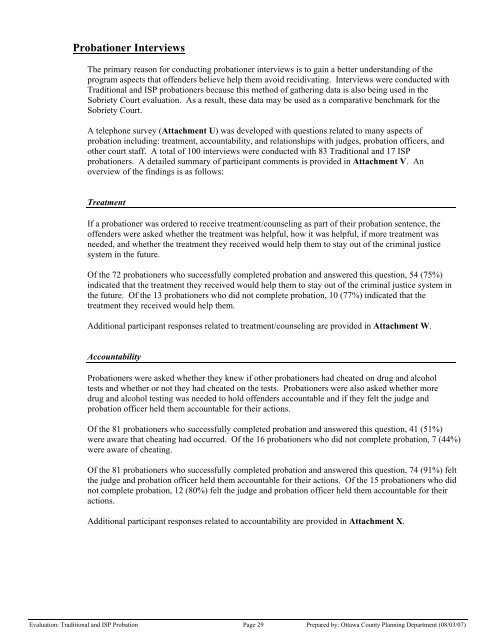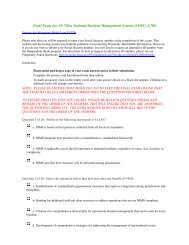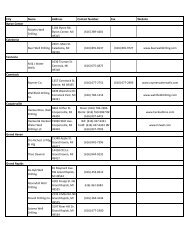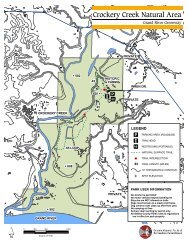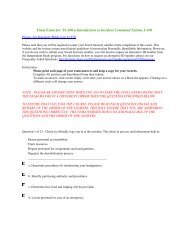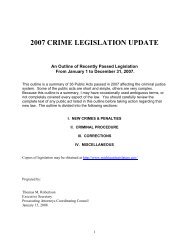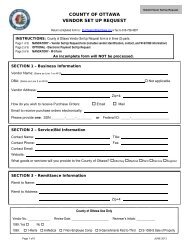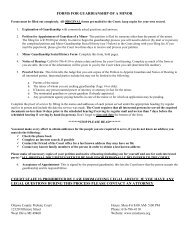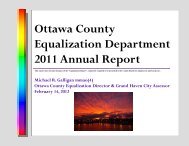Traditional Probation & Intensive Supervision ... - Ottawa County
Traditional Probation & Intensive Supervision ... - Ottawa County
Traditional Probation & Intensive Supervision ... - Ottawa County
Create successful ePaper yourself
Turn your PDF publications into a flip-book with our unique Google optimized e-Paper software.
<strong>Probation</strong>er InterviewsThe primary reason for conducting probationer interviews is to gain a better understanding of theprogram aspects that offenders believe help them avoid recidivating. Interviews were conducted with<strong>Traditional</strong> and ISP probationers because this method of gathering data is also being used in theSobriety Court evaluation. As a result, these data may be used as a comparative benchmark for theSobriety Court.A telephone survey (Attachment U) was developed with questions related to many aspects ofprobation including: treatment, accountability, and relationships with judges, probation officers, andother court staff. A total of 100 interviews were conducted with 83 <strong>Traditional</strong> and 17 ISPprobationers. A detailed summary of participant comments is provided in Attachment V. Anoverview of the findings is as follows:TreatmentIf a probationer was ordered to receive treatment/counseling as part of their probation sentence, theoffenders were asked whether the treatment was helpful, how it was helpful, if more treatment wasneeded, and whether the treatment they received would help them to stay out of the criminal justicesystem in the future.Of the 72 probationers who successfully completed probation and answered this question, 54 (75%)indicated that the treatment they received would help them to stay out of the criminal justice system inthe future. Of the 13 probationers who did not complete probation, 10 (77%) indicated that thetreatment they received would help them.Additional participant responses related to treatment/counseling are provided in Attachment W.Accountability<strong>Probation</strong>ers were asked whether they knew if other probationers had cheated on drug and alcoholtests and whether or not they had cheated on the tests. <strong>Probation</strong>ers were also asked whether moredrug and alcohol testing was needed to hold offenders accountable and if they felt the judge andprobation officer held them accountable for their actions.Of the 81 probationers who successfully completed probation and answered this question, 41 (51%)were aware that cheating had occurred. Of the 16 probationers who did not complete probation, 7 (44%)were aware of cheating.Of the 81 probationers who successfully completed probation and answered this question, 74 (91%) feltthe judge and probation officer held them accountable for their actions. Of the 15 probationers who didnot complete probation, 12 (80%) felt the judge and probation officer held them accountable for theiractions.Additional participant responses related to accountability are provided in Attachment X.Evaluation: <strong>Traditional</strong> and ISP <strong>Probation</strong> Page 29 Prepared by: <strong>Ottawa</strong> <strong>County</strong> Planning Department (08/03/07)


